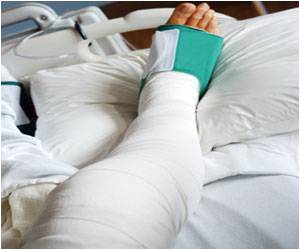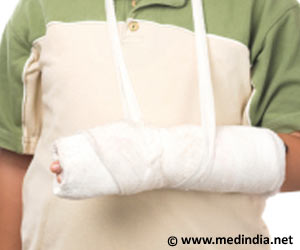Elderly people who are above 50 years are more susceptible to bone fragility fractures. Doctors and scientists need to understand how elderly break their bones.

‘Bone fragility fractures need to be better understood to prevent fractures and the high risk of mortality.’





The new study was from a University of Utah mechanical engineering professor."It really starts with a small microcrack that grows over time under repeated loading," says Claire Acevedo, who has just joined the University of Utah College of Engineering faculty.
"You need to be doing something like just walking or moving, and the crack is slowly propagating. At some point, the remaining cross-section of the bone that is still connected is too small and will break suddenly."
In that case, such fractures in the elderly would be the cause of a fall rather than the result of a fall.
The study, "Fatigue as the missing link between bone fragility and fracture," was published online this week in the latest issue of Nature Biomedical Engineering.
Advertisement
"In engineered materials and structures, cyclic fatigue is the most ubiquitous mode of failure," wrote Acevedo, who studies fractures and stress on skeletal tissue. "Cyclic fatigue accounts for more than 80 percent of all failures, leading to catastrophic and sudden accidents such as the failure of railway axles, the collapse of metallic bridges, the failure of ships and the cracking of aircraft airframes and engines."
Advertisement
"Bone quality is much more important than what we have been thinking," she says. "Old bones gradually lose their mechanical properties, their ability to self-repair and to recover bone quality to prevent the formation of a fracture."
"Fatigue is really important, and bone quality is really important. We need to change our mind about that," she says.
"We need to change our approach on how to study it and not just look at the effect of a single load if we want to prevent such fractures and the high risk of mortality associated with them."
Source-Eurekalert










